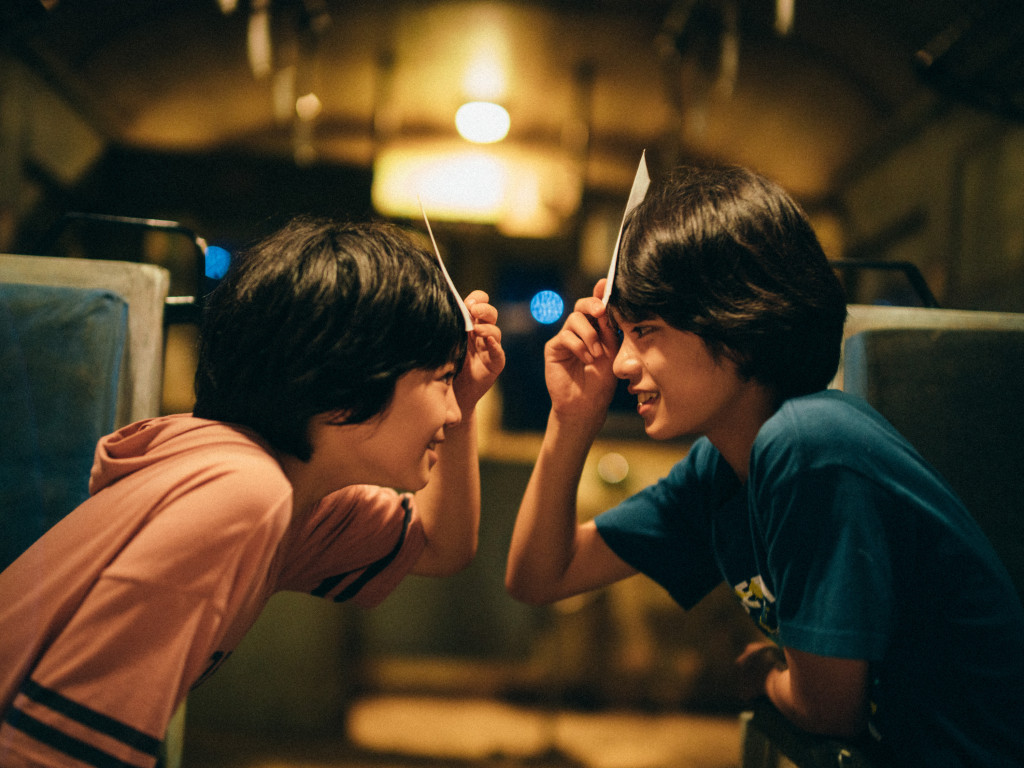In the big US corporate world of moviemaking, stories about complex ordinary people aren’t gonna bring in the big bucks, so they only go for awards, if they get made at all. This is why I adore world cinema, because generally the art and storytelling are at least equally considered along with the entertainment aspect. Take the wonderful Hirokazu Koreeda. All this man does is make compelling movies about cultures the world never sees, shining a light on people and places that have wonderful interesting stories to tell. His latest, Monster, is another beautiful, melancholic, soulful look at people trying but failing to understand each other. But if he pitched this to a US producer, he’d get the Bart Simpson note. Keep making your monsters Hirokazu, I’ll always be watching.
Saori (Sakura Ando) is a single mother, raising her only son Minato (Soya Kurokawa) as best she can. One day, Saori gets out of her son that Minato’s teacher Mr. Hori (Eita Nagayama) hit him, and generally has been bullying him all year. Pissed off and determined, Saori tries to get to the bottom of this, leading her to one of Minato’s friends Yori (Hinata Hiiragi), and the chilly principal of the school Mrs. Fushimi (Yuko Tanaka), who all have different perspectives on what happened.
Koreeda’s greatest gift is his ability to see every one of his characters with empathy. This is surprising as Monster begins, because the story is a pretty straightforward affair, where it’s easy to see who’s right and who’s wrong. Then, about 30 minutes in, you realize Koreeda has put us in a Glass Onion/Rashomon situation, where we’re gonna swap perspectives to see what was really going on. Like the great storyteller he is, certain big moments initially are actually minor parts of the bigger story, while other small moments are actually a big deal, and new, even bigger revelations cast a much more complex web than we initially expected there to be. Koreeda never forgets that the point of all of this is his wonderful characters, constantly shapeshifting and evolving as we learn more about them. The straightforward portrayal in the first mini movie becomes much deeper, sadder, and ultimately compelling as Koreeda slowly unfurls the true nature of all of these people. By the time we reach the end of Monster, we know what the amazing director means by the title, and like his characters, it’s much more nebulous and complicated than meets the eye.
Part of the untangling of Monster is Koreeda softening deep seeded cruel feelings toward certain cultural faux-pas’s. Obviously, no one in their right mind would condone hitting a student, but Koreeda’s brilliant screenplay somehow finds a scenario where you at least give it a second thought, especially because of all the context that explains what actually happened. School corruption also takes on a new light, as usually parents never understand that teachers or principals have lives and feelings of their own. Intergenerational conflict looms large here, as multiple adults completely misread what Minato and Yori are actually thinking. By the end, Koreeda shows everyone that these cultural faux-pas actually create the biggest sin of all, the cruelty towards the people who commit them. Sinners aren’t evil, they’re human, Koreeda’s constant and prevailing theme in all of his works, including Monster.
Keep shining your light Hirokazu Koreeda. Each time the amazing director makes a new movie my heart leaps, because I know I’m going to learn a little more about people whom society pushes to the side, usually unfairly. I never feel more connected and human than I do after watching one of his films, a beacon of hope and understanding in a sea of disconnect.

